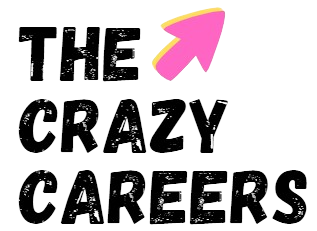In the age of digital media dominance, the demand for skilled voiceover artists has skyrocketed. From commercials and audiobooks to animation and video games, the opportunities are endless for those gifted with a captivating voice and the determination to succeed. If you’ve ever dreamed of lending your voice to bring characters to life or to narrate compelling stories, now is the perfect time to embark on the journey of becoming a voiceover artist. Here’s your comprehensive guide on how to turn that dream into reality.
What is Voiceover?
Before diving headfirst into how to become a Voiceover Artist, it’s essential to understand the nuances of the craft. Voiceover work encompasses a wide range of genres, including commercials, animations, documentaries, video games, and more. Each genre requires a unique set of skills and vocal techniques, so it’s crucial to identify your strengths and interests early on.
Discover your passion for the art of voiceover
Discovering your passion for voiceover artistry involves self-exploration and experimentation. Here are some steps to help you determine if voiceover is the right path for you:
- Listen to a variety of voiceover work across different genres, including commercials, audiobooks, animations, and video games, to see what resonates with you.
- Try mimicking different accents, tones, and characters to gauge your versatility and comfort level with voice acting.
- Attend voiceover-specific training programs or workshops to learn about the art and techniques of voice acting.
- Share your voiceover recordings with friends, family, or online communities and ask for constructive feedback.
- Offer your voiceover services for volunteer or low-pressure projects to gain experience and test your passion for the craft.
- Reflect on how you feel when engaging in voiceover activities. Do you feel a sense of excitement, fulfillment, and satisfaction?
- Engage with online communities, forums, and resources dedicated to voiceover artistry to expand your knowledge and skills.
- Listen to your intuition and trust your instincts when evaluating your passion for voiceover artistry.
Develop your voiceover skills
Like any other profession, mastering the art of voiceover requires dedicated practice and continuous improvement. Here are some steps to help you hone your skills:
- Voice Training: Enroll in voice training classes or workshops to learn proper breathing techniques, vocal control, and modulation. Strengthening your vocal cords and expanding your vocal range will enhance your versatility as a voiceover artist.
- Acting Classes: Voice acting is all about conveying emotions and telling stories through your voice. Consider taking acting classes to develop your performance skills, learn how to embody different characters, and deliver convincing performances.
- Script Analysis: Practice analyzing scripts to understand the tone, mood, and message behind the words. This skill is crucial for delivering authentic and compelling voiceovers that resonate with audiences.
- Recording Equipment: Invest in quality recording equipment, such as a microphone, pop filter, and audio interface, to ensure professional-quality recordings. Setting up a home studio will allow you to practice and audition from the comfort of your own space.
Voiceover artist salary in different countries
- United States: $100 to $500 or more per hour.
- United Kingdom: £100 to £500 or more per hour.
- Australia: AUD $100 to $500 or more per hour.
- India: INR 1,000 to INR 10,000 or more per hour.
Course required to become a voiceover artist
While there isn’t a specific professional course required to become a voiceover artist, enrolling in relevant training programs can significantly enhance your skills and increase your chances of success in the industry. Many aspiring voiceover artists choose to pursue formal education or training in areas such as:
- Voice Acting Workshops: These workshops focus on developing your voice acting skills, including character portrayal, emotion expression, and script interpretation. They often include practical exercises, feedback sessions, and opportunities to work with experienced instructors.
- Voiceover Training Programs: Several educational institutions and specialized academies offer comprehensive voiceover training programs. These programs cover various aspects of voiceover work, including voice acting techniques, vocal health, studio etiquette, and industry insights.
- Acting Classes: Since voiceover work involves performing and conveying emotions through your voice, taking acting classes can be incredibly beneficial. Acting classes help you develop your performance skills, understand character motivations, and deliver authentic performances.
- Vocal Training: Improving your vocal technique is essential for a successful voiceover career. Voice training classes focus on exercises to strengthen your voice, expand your vocal range, improve diction, and enhance vocal control.
- Technical Skills: Familiarizing yourself with recording equipment, audio editing software, and studio techniques is crucial for producing professional-quality voiceovers. Consider taking courses or workshops on audio engineering, sound editing, and studio setup to gain technical proficiency.
Career opportunities as a voiceover artist
- Audio Book Narration: Audiobook narration involves recording voiceovers for narrating books across various genres, including fiction, non-fiction, and children’s literature. Many authors and publishers hire voiceover artists to bring their books to life in audio format.
- Corporate Narration and E-Learning: Many companies create corporate videos, training modules, and e-learning materials that require voiceover narration. Opportunities exist for voiceover artists to provide narration for corporate presentations, instructional videos, and online courses.
- Dubbing and Localization: Dubbing involves replacing the original dialogue in films, TV shows, and animations with voiceovers in another language. Voiceover artists with proficiency in multiple languages can find opportunities in dubbing and localization projects.
- Commercial Voiceovers: Commercials for television, radio, online platforms, and other mediums often require voiceover talent to deliver engaging and persuasive messages to audiences. Voiceover artists can lend their voices to a wide range of commercial projects, including advertisements, promos, and branding campaigns.
- Character Voice Acting: Voiceover artists with a knack for creating unique character voices and personalities can pursue opportunities in animation, video games, cartoons, and other forms of entertainment. Character voice acting involves bringing animated characters, video game protagonists, and cartoon personalities to life through voice performances.
By exploring these diverse career paths and leveraging your skills and talents as a voiceover artist, you can carve out a fulfilling and rewarding career in the entertainment industry. Also, incase of any specific query on how to become a Voiceover Artist, please feel free to comment below or write to us on thecrazycareers@gmail.com.




